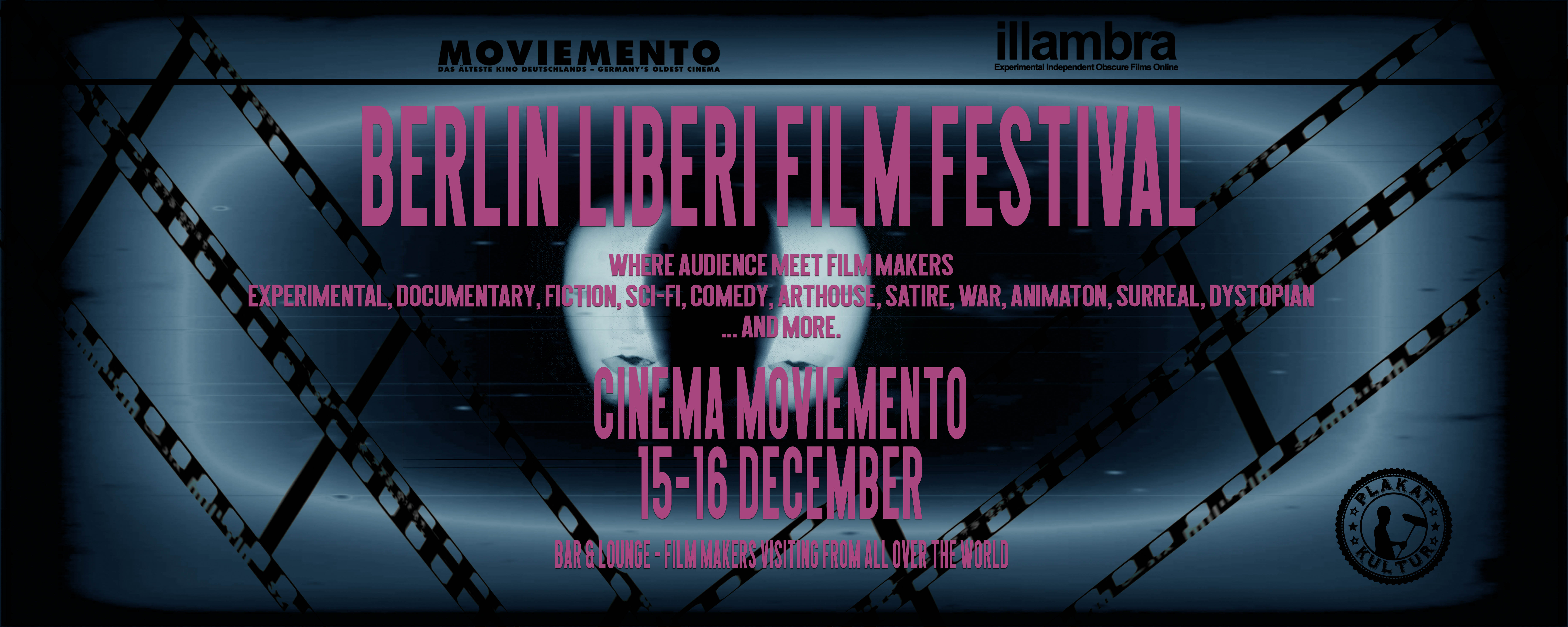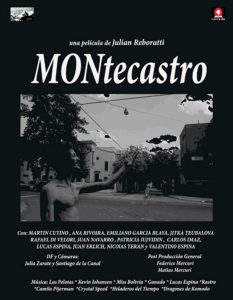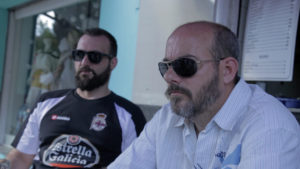
BLFF 2018 Indie Film Review “Montecastro”
WATCH THE TRAILER HERE
First, the Recap:
The soul of a city. While all might seem well in places we call paradise, there is also an unyielding, inescapable truth that it only takes specific elements suddenly converging to cause things to explode, where supposed angels become devils, and the quiet turns to chaos. We find that it is the Christmas season, and the city of Buenos Aires hustles and bustles as usual, with commerce booming and its people’s hurried comings and goings ever present. Yet, in the outlying neighborhood of Montecastro, a completely different type of “normal” begins to rear up, even as the temperatures soar to meet it head on, a cycle of criminality, violence, and the desperate need for compassion, understanding, unification.
How will it impact free spirited pot dealer Ana (Ana Rivoira) and her two best friends Valentina (Valentina Posleman) and Rosi (Rosa Rivoira), local priest Padre Roman (Martin Cutino), Russian store owner Jitka (Jitka Teubalova), local crime boss Don Carlos (Emiliano Garcia Blaya) and his main associate El Rafa (Rafael Di Velori) plus their “secuaz” (Paco Garcia Blaya & Leandro Valcarcel), dirty cops like Carlitos (Carlos Imaz) and Juan (Juan Navarro), a small time thug El Nico (also Cutino), or homeless duo Juancito “The Fisherman” (Juan Erlich) and his friend, the guitar-playing El Turco (Nicolas Teran)? This utterly contrasting group of individuals unknowingly begin traveling down a path to an unstoppable meeting point that will ultimately change them all and the reality they’ve come to accept about the world they inhabit.
Next, my Mind:
While this 85-minute indie feature film project from writer/director/producer Julian Reboratti, screening at this year’s Berlin Liberi Film Festival, is billed as a dramedy, any comedic elements found here are certainly more on the dark side as its narrative unfolds in telling the tale of a strikingly different yet inevitably drawn together group of residents in the Buenos Aires suburb of Montecastro and the building circumstances that bring them into each other’s paths, whether for good or ill to be determined. What makes the film so impactful is its no-hold-barred illustration of how the ever-fluctuating dynamics of the grander human condition, race relations, social conditions, familial bonds, and blurring lines of right and wrong all come crashing together and how it’s all experienced by a this gaggle of people who might not normally have any connection whatsoever if it wasn’t for, in this story’s case, the concepts of the Christmas holiday, overt heat, and underlying sense of survival as it applied to each of their lives being shared between them in some fashion.
Additional weight to the film’s overall messages gets added when we see the sad truth that it ends up being an escalating pattern of premediated or existing malfeasance which manifests and soon takes over them all, even in such a progressive city as Buenos Aires, and it becomes the sobering reminder of the day and age in which we live, and that the most innocent of “offenders” to the most blatant are not immune to potential harm from it all. The irony that the narrative is taking place during what should be one of the most happy times of the year is not at all lost here, either, even as we see examples of certain characters trying to take it all in, yet still be a part of the more criminal side of events as well. Visually, the film is shot with crisp precision and effectively follows these characters in their respective journeys, giving us as the viewer full insight into the turbulent underbelly of Montecastro and depicting the harsh actualities of it with potency and efficiently shot sequences that showcase just how lacking these people are overall, so in need of real hope and less endangering dreams. Also utilized is a highly contemporary Latin-based soundtrack which very energetically infuses the film with a modern sensibility to aid in reflecting the era we’re in and the atmosphere being cultivated.
Ana Rivoira does a fine job in her enactment of Ana, a young woman whose carefree nature and pot-dealing ways actually seem legitimately innocent, as she only seeks to provide for her little daughter while trying to eke out a living. She has both a wicked sense of mischievous humor but also a deep, heartfelt commitment to friends and her daughter’s well-being, a nurturing soul that Rivoira brings out very well here. Cutino boldly and fruitfully pulls double duty as both the well-meaning Padre Roman, a haggard but patient man of faith attempting not to lose his own beliefs as he endeavors to rescue a community running amok, and as El Nico, Roman’s highly wayward twin bother, a small time thug trying to make his bones with the town’s Don while also simply vying to stay alive and not screw up. The characters are so definitively different in manner and action, but Cutino successfully embodies each with equal bravado and engaging intent. Emiliano Garcia Blaya likewise pulls out the stops, with just a small amount of over-the-top bombast, in portraying Montecastro’s real boss, Don Carlos, a ruthless man who oversees a myriad of illicit activities while still attempting to make people believe he actually has a heart and soul when making his daily visits to his grandmother and great aunt at the local nursing home. We know even this is all a power play and further control for him to exercise over others, which Blaya pulls off so smartly and entertainingly throughout.
Di Velori exerts a believable sense of menace as Don Carlos’ right hand man El Rafa, who has no scruples or “off” switch when it comes to forcibly enacting his boss’ wishes as well as what are most likely some of his own “side projects” like robbery and murder. The calm manner in which he seems to conduct himself belies the violence contained within him, and Di Velori encompasses this well. The duo of Erlich and Teran really are the ultimate comedic aspects of the film via their characters Juancito and El Turco, two homeless vets we believe who like to meet up in the city’s park and pretend it’s near the ocean, which justifies Juancito’s “fishing” expeditions he undertakes, long casting pole and all, while Juan accompanies the adventure via singing and playing his guitar to a grand audience of two, all while they dream and act as if there might not be anything wrong at all with the world–at least until they get the reality check of being driven off from the park by authorities who don’t want them there. Teubalova’s Russian store vendor Jitka is one of the true innocents involved in Montecastro’s corrupt dealings, being that her store-owning father has become behind in protection or extortion money collected by Rafa on a regular basis, putting her in a bad position with Don Carlos that could spell her fate, even though as with anyone in this scenario, she’s done nothing legitimately wrong in just trying to stand up to and against criminals.
Posleman and Rosa Rivoira have evident fun playing Ana’s two primary pals Valentina and Rosi, equally as carefree as Ana and more than happy to stand around looking beautiful while helping to sell pot. Imaz and Navarro present acutely casual yet also menacing swagger in their roles as Carlitos and Juan, corrupt cops out to get their paydays any way possible, primarily through bribes, while just accepting the fact they’re really “owned” men. Paco Garcia Blaya and Valcarcel provide easily believable performances as two of Don Carlos’ “secuaz” (henchmen), two men willing to do what the boss wants and enjoy it to the fullest, no matter what said demands entail. Appearances are made here as well from Olivia Garcia Blaya as Ana’s daughter Olivia, Martin Racchio as “Mickey Mouse” a local children’s entertainer, Arolinda Anez and Basilia Barone as Don Carlos’ elderly relatives, and Jakub Sanko as Jakub “The Cousin”. In total, with its impressive ensemble cast, character-driven, dramatic stylings, and compelling, persuasive message about contemporary society, “Montecastro” makes a fine addition to the indie feature film ranks and is more than worthy to take notice of.
As always, this is all for your consideration and comment. Until next time, thank you for reading!







Permalink